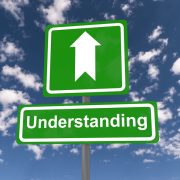Dispelling Common Self-Directed Checkbook IRA Myths
The Self-Directed Checkbook IRA is a unique investment strategy—that’s something that no one would contest. But because the Checkbook IRA is relatively rare among retirement investors, it’s not hard for it to develop almost mythical status. But what’s myth and what’s reality? Let’s take a look at some of the most common Checkbook IRA myths and what the reality is behind them:
Myth #1: A Self-Directed Checkbook IRA is a Scam
Not so. A Checkbook IRA is simply the name to a process that is completely allowable under regulations—holding an LLC within an IRA, which then grants checkbook control to the investor. When people hear about what a Self-Directed Checkbook IRA actually is, they understand why it might work so easily. But when they don’t have access to all of the facts, it’s much easier to dismiss it as an illegitimate scam. But a Checkbook IRA doesn’t have to be popular to be effective or legitimate. It just has to be effective and legitimate.
Myth #2: A Self-Directed Checkbook IRA is Inherently Risky
Any investment can be risky. Stock investing can be a well-diversified, relatively safe way of investing if you approach it with a wide variety of stocks and funds. Or it can be an over-leveraged game that’s more akin to gambling if you play it the wrong way. The same is true of most investments. A Self-Directed Checkbook IRA is no different. It’s possible to make risky bets with a Checkbook IRA—after all, it allows for that type of control—but that does not mean it has to be run that way. In fact, a Checkbook IRA can be a relatively conservative style of investing, depending on the personality of the person who holds the IRA and the checkbook control in question.
In this case, the point is that you will have the freedom to choose. And a Self-Directed Checkbook IRA is not inherently risky, especially if you work with reputable people at every stage of setting up the IRA.
Myth #3: Prohibited Transactions are Overwhelming and Hard to Adhere To
You might find the phrase “prohibited transactions” when you look into the investments you can and cannot make with a Self-Directed IRA. It’s tempting to read over a list of prohibited transactions and think to yourself— “gosh, I did not realize all of the stuff I could not do.” But the truth is, prohibited transactions tend to focus on not using your retirement funds for the personal benefit of you and people you know. It’s that simple. For example, you would be expected not to hold real estate within an IRA and then allow someone you know—such as a son or daughter—to live in that real estate rent-free. As long as you keep your retirement investments separate from your personal assets, you will go a long way towards adhering to the IRS guidelines for prohibited transactions. It’s much easier than it sounds.
Myth #4: Investors Have Zero Protection with a Self-Directed Checkbook IRA
You will see a lot of complaints online that a Self-Directed Checkbook IRA is not “protected.” But what does that mean, exactly? What investments are guaranteed returns, after all? And why cannot a Checkbook IRA holder seek out legal advice and tax advice whenever they need it? The truth is, there’s more risk in the average investment than most people realize. The Checkbook IRA is simply another method of investing—another way of setting up your accounts and your LLCs so you can invest in a different way. It does not mean that you will be protected from failure any more than you would be in a usual retirement investment setup. But with the proper strategy and in working with the right people, you can minimize risk much more than you ever thought possible.
Interested in learning more about Self-Directed IRAs? Contact American IRA, LLC at 866-7500-IRA (472) for a free consultation. Download our free guides or visit us online at www.AmericanIRA.com.










